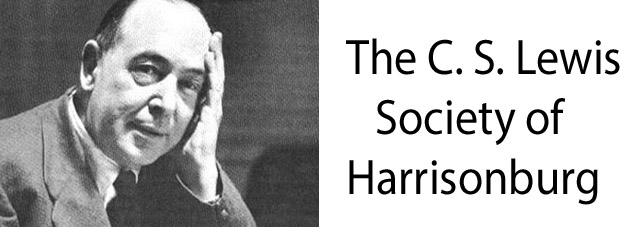Our Read for Thursday June 14th is Surprised By Joy Lewis' autobiography of his early life from earliest memories until around 1922. Written in 1955, C.S. Lewis starts his book with quite a bit of autobiography but becomes beautifully focused on his spiritual and intellectual process. It is more a revelation of the effects of his conversion on his inner life than a outward detail of events. This book has a vividness of his thought and sehnsuct, that joy described as longing. In some ways a heartrending read of circumstances and tragedy that causes his story to be both helpful and relatable to the reader. In my mind I was struck by the thought while rereading his book that joy is the manifestation of hope in a fallen world. Come join us at Barnes & Noble at 7:20 P.M. :)
Discussion Questions for Surprised By Joy by C. S. Lewis
1. In the first chapter Jack tells us of his first experiences of “joy”: seeing the toy garden, standing beside a flowering currant bush, reading Squirrel Nutkin and being entranced with the idea of autumn, reading The Saga of King Olaf and being uplifted by “Northernness”. Have you ever had experiences like this? How might such experiences lead one to belief in God?
2. Jack describes the “loss of security” which he experienced following the death of his mother. How might one describe Jack’s early life as a “search for security”? Do you think he found it?
3. Lewis says that it was during his “concentration camp” experience that he first became an effective believer. Fear played a dominant role in his early faith. How was this fear assuaged later on in Jack’s life? Have you had a similar experience? Are you more fearful of God or drawn to him in love? Why do you think so?
4. It was at Cherbourg House (Chartres) in Malvern (Wyvern), England that Jack “ceased to be a Christian.” What influenced him to become an atheist? Why was he “desperately anxious to get rid of his religion”? Have you ever had a similar experience?
5. What do you think of the fact that Jack describes, in some detail, the homosexual practices of Malvern College without condemning them? Does this make it easier or harder for you to listen to and appreciate Jack’s journey to God? Why?
6. Jack notes that “spiritually speaking, the deadly thing was that school life was almost wholly dominated by the social struggle.” What effect did this have on Jack’s life? Did you ever experience this “social struggle” in your school days? What effect did it have on your life?
7. Lewis states that during his time at Malvern College he was angry with God for not existing and equally angry with him for creating a world. Do you think other atheists experience this? Have you ever felt this way? Why?
8. One of the features of Jack’s early life was a strained relationship with his father. How do you think this relationship influenced Jack’s turn to atheism and later, back to Christianity?
9. In the middle portion of the book Jack describes two people who had a great influence upon him: his life-long friend, Arthur Greeves, and his tutor, William Kirkpatrick. How did these two people influence Jack? What role have other people played in your own spiritual journey?
10. One of the sub-themes of Jack’s early life was his great desire to be “left alone.” His great problem with Christianity was that there was a “transcendental Interferer” at the center of it. Do you think Jack’s feelings on this subject are characteristic of many people? Why or why not?
11. Toward the end of Jack’s time at Great Bookham he faced a great conflict between “joy” and his materialistic “faith.” What was the conflict? How was this conflict eventually overcome?
12. Do you think the “dialectic of desire” is a powerful argument for theism? Why or why not?
13. In chapter 12 Jack writes that a person who wants to maintain his atheism needs to be careful of his reading. Two of the writers who had a dramatic impact on Jack’s return to Christianity were George MacDonald and G. K. Chesterton. How did these writers affect him? What writers have been influential in your own spiritual pilgrimage?
14. How did Jack’s Oxford friends (Jenkin, Barfield, Harwood, Coghill, Dyson and Tolkien) influence him toward embracing Christianity?
15. One of the most fascinating aspects of Jack’s conversion to theism is the fact that he did not want to become a believer in God. Why was this true? Does this make Jack’s story more or less credible to you?
16. What do you think of the fact that Jack immediately started attending his parish church once he became a theist even though churchmanship was “wholly unattractive” to him? Do you think there is anything we can learn from Jack in this regard?
17. The question which led Jack finally to accept Christianity was this: “Where has religion reached its true maturity?” Do you find Jack’s answer to this question credible? Why or why not?
Questions from Speaking of Jack by Will Vaus

